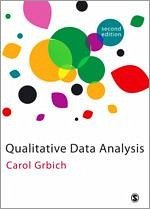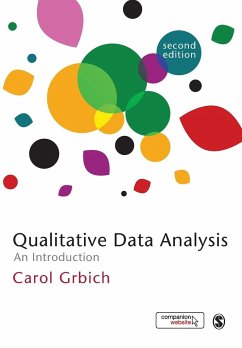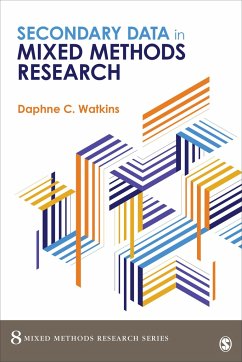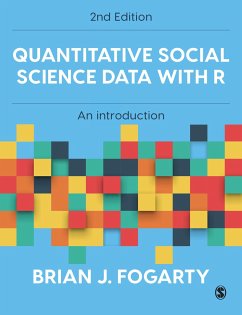
Qualitative Data Analysis
An Introduction
Versandkostenfrei!
Versandfertig in 6-10 Tagen
122,99 €
inkl. MwSt.
Weitere Ausgaben:

PAYBACK Punkte
61 °P sammeln!
In this fully updated and expanded second edition, Carol Grbich provides a guide through current issues in the analysis of qualitative data. Packed with detailed examples, a glossary, further reading lists and a section on writing up, this book is exactly what you need to get you started in qualitative research. The new edition covers analytical approaches including:- grounded theory- classical, existential and hermeneutic phenomenology- feminist research including memory work- classical, auto- and cyberethnography as well as ethnodrama- content, narrative, conversation and discourse analysis-...
In this fully updated and expanded second edition, Carol Grbich provides a guide through current issues in the analysis of qualitative data. Packed with detailed examples, a glossary, further reading lists and a section on writing up, this book is exactly what you need to get you started in qualitative research.
The new edition covers analytical approaches including:
- grounded theory
- classical, existential and hermeneutic phenomenology
- feminist research including memory work
- classical, auto- and cyberethnography as well as ethnodrama
- content, narrative, conversation and discourse analysis
- visual interpretation
- semiotic, structural and poststructural analyses
A one-stop-shop for students new to qualitative data analysis!
The new edition covers analytical approaches including:
- grounded theory
- classical, existential and hermeneutic phenomenology
- feminist research including memory work
- classical, auto- and cyberethnography as well as ethnodrama
- content, narrative, conversation and discourse analysis
- visual interpretation
- semiotic, structural and poststructural analyses
A one-stop-shop for students new to qualitative data analysis!













